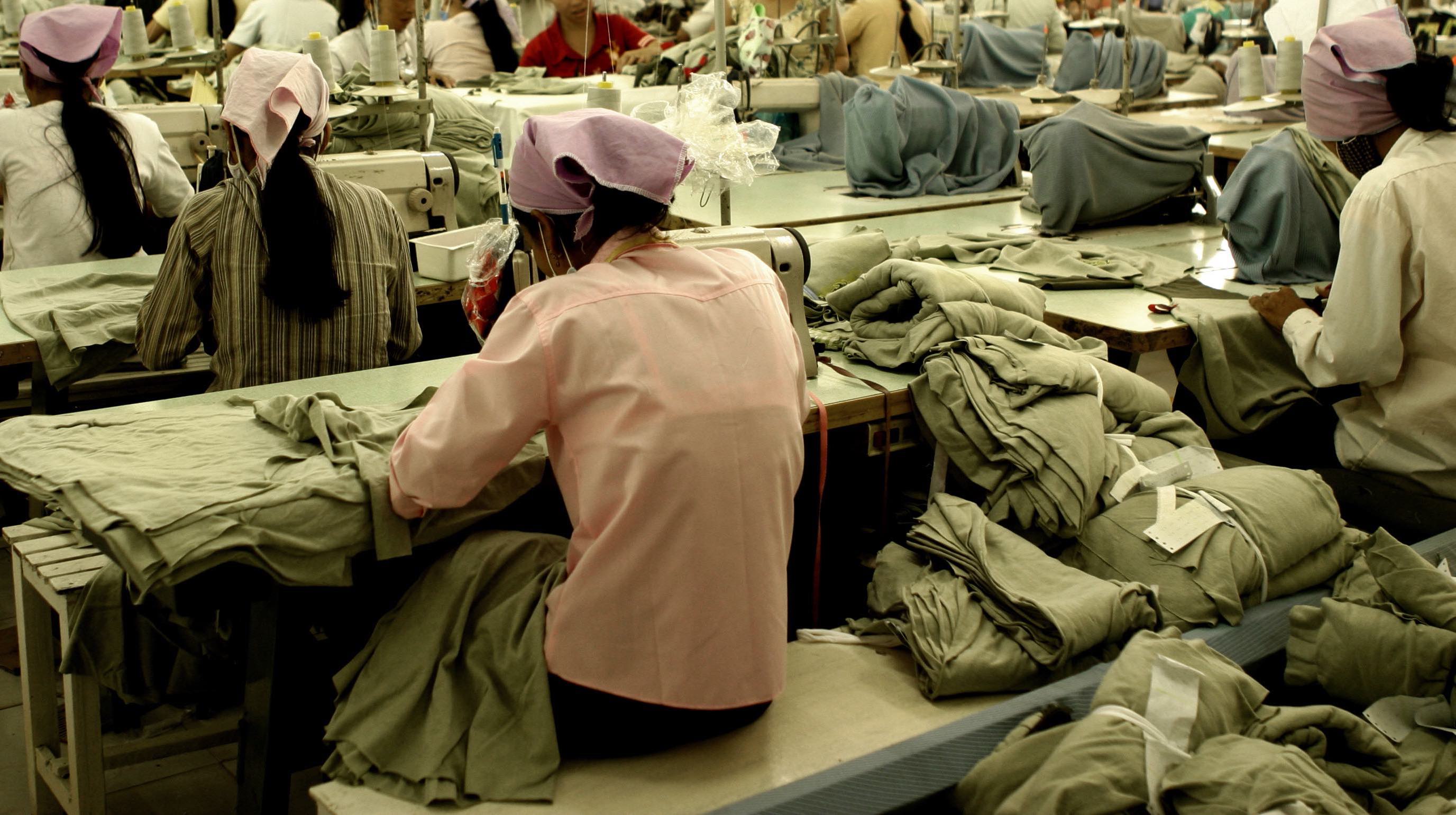How can social audits in factories reveal a culture of fear?
 Menu
Menu

9 September 2019
Sitting on Pins and Needles
A rapid assessment of labour conditions in Vietnam's garment sector
Vietnam is one of Asia’s largest garment producers.[1] Approximately 6,000 garment enterprises employ an estimated 2.5 million people, of which 2,500 enterprises specifically serve the export market.[2] The United States, Japan and the European Union (EU) are the biggest markets for garments from Vietnam.[3] In preparing for Free Trade Agreement with the EU (signed in June 2019), Vietnam has seen significant improvements in its legislation addressing issues of forced and child labour, and increased the national minimum monthly wage from approximately USD 110 to approximately USD 161. However, to what extent are labour standards being tangibly realised for garment sector workers?
Last year Embode was commissioned by NGO Anti-Slavery International to conduct a rapid assessment of labour conditions in factories producing and supplying garments for the EU market. This involved in-depth interviews with 21 garment factory workers (13 women and 8 men) from three Tier 1[4] factories in North and South Vietnam who undertook tasks from sewing, cutting and trimming, ironing and distribution. All interviews were conducted off-site and away from factories, enabling workers to open up and speak frankly about their experiences.
What emerged through the interviews were stories of workers experiencing distress, fear and intimidation in their daily working lives. They felt coerced to work through the use of threats, such as of losing their job or having their wages deducted for ‘making mistakes’ or taking days off sick. The workers described how they had no choice but to work overtime whenever the factory needed them to, sometimes working up to 12 hours a day. They described a picture highlighting management techniques aimed at extracting the highest productivity for the least cost by utilising a hybrid of stress and surveillance and indirect forms of psychological control. Deductions of approximately USD 4 were common for each mistake; a significant amount for workers earning between USD 180 to USD 600 per month, depending on the amount of overtime they undertook.
Of note, most large Tier 1 factories in Vietnam that supply for the export market are reportedly regularly audited for labour and social sustainability. However, workers described being visited by external auditors and even attending training delivered by NGOs but not feeling sufficiently safe to be able to air their grievances to them.
The report highlights the importance of developing ways of not only accessing workers using ‘worker voice tools’ but fundamentally changing the way ‘freedom of association’ is measured. Whilst regular social auditing can improve awareness of better labour standards for workers, they fall short of measuring the actual effectiveness of how these protect employees. Broader and more meaningful engagement is needed with workers in order to understand their experiences and ensure social standards are genuinely sustainable.
- Aarti Kapoor
To read the full report, click here.

[1] Textile Today (2019), ‘Bangladesh and Vietnam jointly gain 2nd largest apparel exporter position’, 5 August 2019, <https://www.textiletoday.com.bd/vietnam-bangladesh-jointly-gain-2nd-largest-apparel-exporter-position/>
[2] Chi D.Q. (2017), The missing link in the chain? Trade Regimes and Labour Standards in the Garments, Footwear and Electronics Supply Chains in Vietnam, Friedrich-Ebert-Stiftung Vietnam, accessed 23 September 2018, <http://library.fes.de/pdf-files/bueros/vietnam/13334.pdf>
[3] The Lab (2017), From obligation to opportunity: A market systems analysis of working condition in Asia’s garment export industry, International Labour Organization, accessed 23 September 2018, <http://www.oit.org/wcmsp5/groups/public/---asia/---ro-bangkok/documents/meetingdocument/wcms_579468.pdf>
[4] Tier 1 factories manufacture for and supply to brands and retailers.